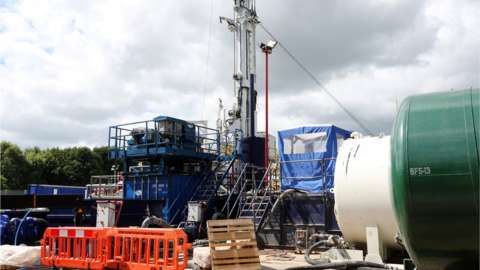Commenting on Prime Minister Liz Truss’ decision to lift the fracking ban, Brian Mullin, partner and head of planning consultancy Marrons Planning, said: “The suggested mechanism for seeking planning permission for fracking appears to be very similar to the community consent mechanism required for onshore wind permissions. On the basis of past evidence, it is highly doubtful the fracking industry will meaningfully contribute to energy supply in the UK.
“A 2015 Written Ministerial Statement (WMS) based on a Conservative Manifesto pledge to ‘change the law so local people have the final say on wind farm applications’ was followed by the somewhat toothless National Planning Policy Framework commitment to ‘approve the application if its impacts are, or can be made, acceptable’. A footnote in the policy then states permission will be granted if, ‘following consultation, it can be demonstrated that the planning impacts identified by the affected local community have been fully addressed and the proposal has their backing’.
“To give an understanding of the effect of this mechanism, 16 new turbines were granted planning permission between 2016 and 2020 across England – representing a 96% decrease compared to the 435 turbines permitted for construction on 108 different sites between 2011 and 2015. Furthermore, 89% of all local planning authorities in England do not have areas identified as suitable for wind energy development in their local plan or in an adopted neighbourhood plan.
“These figures illustrate that the 2015 WMS and subsequent planning policy effectively obliterated the onshore wind turbine industry in England. While the impacts of fracking are distinguishable from wind turbines, they are no less contentious. With lots of fear around environmental harm, this will be highly emotive for local communities. Whether a 25% decrease in energy bills is effective remains to be seen.
“If the government was serious about delivery, the evidence suggests that community consent would need to be removed as it demonstrably amounts to a moratorium for delivery. This would be a difficult political decision and would risk alienation of those responsible for putting Prime Minister Truss into office.”











